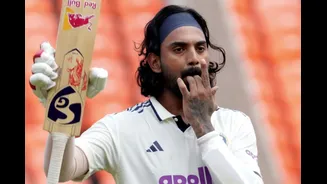Court's Mandate Defined
The Supreme Court of India delivered a key judgment that sets a firm date for the completion of local body elections in the state of Maharashtra. The court's
directive specifies that all such elections must be concluded by January 31, 2026. This deadline is critical as it provides a clear timeline for the electoral process, aiming to avoid any further delays that might stem from legal challenges or administrative issues. By setting this date, the court intends to ensure the timely conduct of elections, reinforcing the democratic framework at the local government level. The decision is expected to guide the state election commission and other involved bodies in their preparations, offering a focused objective for them to work towards.
Significance of the Ruling
This Supreme Court ruling has significant implications for Maharashtra’s local governance. The verdict serves as a direct instruction to state authorities, compelling them to adhere to the stipulated deadline. This measure reinforces the importance of holding regular elections to maintain the vitality of local democratic bodies. The court's mandate underscores the need for free, fair, and timely elections. The January 31, 2026 deadline is pivotal because it imposes a strict schedule, urging all relevant parties to efficiently manage resources and activities. This contributes to improved administrative efficiency, making sure that election processes are not hindered by unnecessary delays. Moreover, this decision affirms the integrity of electoral systems and builds trust in governmental institutions at the grassroots level.
Impact on Elections
The Supreme Court's decision directly influences the planning and conduct of the Maharashtra local body elections. Authorities responsible for organizing these elections must now work to meet the deadline, which necessitates the meticulous management of several aspects. These include defining electoral boundaries, updating voter lists, and making preparations for the voting process. Setting the timeline creates an environment where election authorities are driven to improve their efficiency. This also gives political parties and candidates a clear timeframe to strategize their campaigns and engage with voters, resulting in a more organized and streamlined election. This directive from the highest court will help ensure that election operations proceed without setbacks, providing a clear pathway for the democratic selection of local representatives.
Future Electoral Processes
This ruling from the Supreme Court has potential implications for future electoral procedures in Maharashtra. It sets a precedent for how the judiciary can intervene to ensure that elections are conducted promptly, and provides a structure for other similar situations in the future. The defined timeline sets a clear guideline for administrative bodies involved in elections, guiding their planning. It may lead to the introduction of improved strategies to meet court-mandated deadlines and prevent potential delays in the future. The emphasis on upholding the constitutional rights of citizens to participate in the democratic process is strengthened by this ruling, fostering trust and confidence in electoral processes. It reinforces the importance of timely and efficient elections, setting the benchmark for similar cases in the future.















